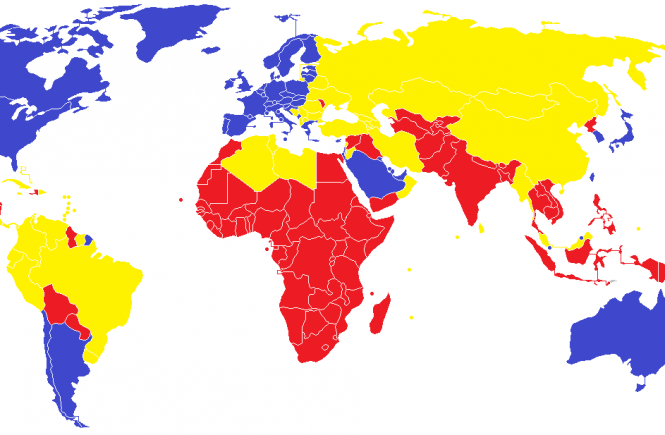The demand for a New World Information and Communication Order The international information system, the NWICO protagonists argued, perpetuated and strengthened inequality in development, with serious implications for the countries of the South, which were heavily dependent on the North for both software and hardware in the information sector. It was argued by Third World leaders that through their control of major international information channels, the Western media gave an exploitative and distorted view of their countries to the rest of the world. The existing order, they contended, had, because of its structural logic, created a model of dependence, with negative effects on the polity, economy and society of developing countries. Their demands were articulated by Tunisian Information Minister Mustapha Masmoudi, who was later a member of the MacBride Commission. The chief complaints from the long litany of the Third World demands were as follows: • owing to the socio-technological […]
Satellite Instructional Television Experiment (SITE)
The use of modern technologies for development purposes was pioneered by the Indian Government when in 1975 it launched the Satellite Instructional Television Experiment (SITE). The programme, supported by UNESCO, aimed to use satellite technology to assist development by transmitting daily programmes on health, agriculture and education to rural communities. India’s Department of Atomic Energy negotiated a deal with the US National Aeronautics and Space Administration (NASA) which loaned India one of its satellites, Applications Technology Satellite-6 (ATS-6), for a year to make these broadcasts in exchange for sharing the knowledge from the project. The SITE programmes lasted from 1 August 1975 to 31 July 1976, and the estimated cost to India of the world’s largest techno-social experiment was about $6.6 million. The government chose 2400 villages, selected from 20 districts of some of the poorest regions of six contiguous provinces – Orissa and Bihar in the east, Madhya Pradesh […]
International Communication and Development
For nearly half a century, the Cold War divided the world into hostile East-West blocs. This had significant implications for the development of Third World countries, most of whom wanted to avoid bloc politics and concentrate on the economic emancipation of their populations. The phrase ‘Third World’ itself was a product of the Cold War, said to have been coined by French economic historian Alfred Sauvy in 1952, when the world was divided between the capitalist First World, led by the United States and the communist Second World with its centre in Moscow. The ‘Third World’ was the mass of countries remaining outside these two blocs1 (Brandt Commission, 1981; South Commission, 1990). National liberation movements in Asia, Africa and Latin America had altered the political map of the world. The vast territory occupied in 1945 by European colonial powers extended over 36 million sq. km; by 1960 as a result […]
Cold War Propaganda in the Third World
Another major battle for the hearts and minds of people during the Cold War was fought in the Third World, where countries were emerging from centuries of subjugation under European colonial powers. The Soviet Union had recognized that, since the nature of the anti-colonial movements in Asia and Africa was largely anti-Western, the political situation was ripe for promoting communism. The West, on the other hand, was interested in continuing to control raw materials and develop potential markets for Western products. Radio was seen as a crucial medium, given the low levels of literacy among most of the population of the developing countries. In addition, the nascent media in the newly independent countries in Asia and Africa were almost always state-controlled and thus less able to compete with foreign media, with their higher credibility and technological superiority. The Middle East was a particular target for Western broadcasters, given its geo-strategic […]
The BBC’s dependence on the British Government
In contrast to US state propaganda, the BBC’s External Services prided themselves on presenting a mature, balanced view, winning by argument, rather than hammering home a point, in the best tradition of British understatement. This proclaimed policy of ‘balance’ gave the BBC more international credibility than any other broadcasting organization in the world. The BBC’s dependence on the British Government was evident, since its budget was controlled by the Treasury through grant-in-aid from the Foreign and Colonial Office (now called the Foreign and Commonwealth Office), which could also decide which languages were used for programmes and for how long they were broadcast to each audience. For example, during the Berlin blockade of 1948-49 almost the entire output of the BBC external services was directed to Eastern bloc countries. In addition, the government exerted indirect influence on the BBC since the relay stations and overseas transmitters were negotiated through or owned […]
Covert communication – Radio Free Europe and Radio Liberty
Among the explicitly propagandist radio stations that thrived during the Cold War were Radio Free Europe (RFE) and Radio Liberty (RL), operating from West Germany. While the Voice of America was the legitimate broadcasting arm of the United States Information Agency, the Munich-based RFE and RL were covert organizations carrying out a propaganda war against communism in Europe. They were part of what is now called ‘psychological warfare’ in which the ‘campaign for truth’ became the ‘crusade for freedom’. Free Europe Inc. was established in 1949 as a non-profit-making, private corporation to broadcast news and current affairs programmes to Eastern European countries behind the Iron Curtain. Radio Liberation (the name Radio Liberty was adopted in 1963) was created two years later along the same lines to broadcast to the Soviet Union (Mickelson, 1983). Both were covertly funded by the US Government, mainly through the Central Intelligence Agency until 1971, when […]
